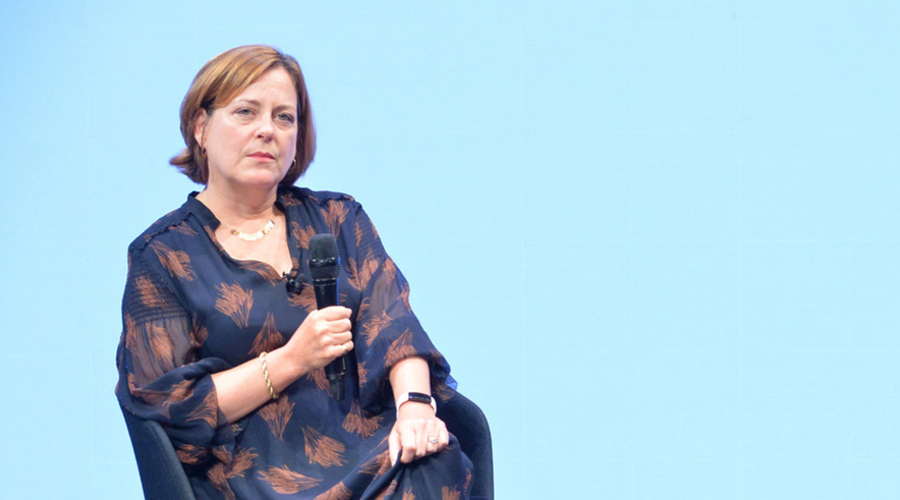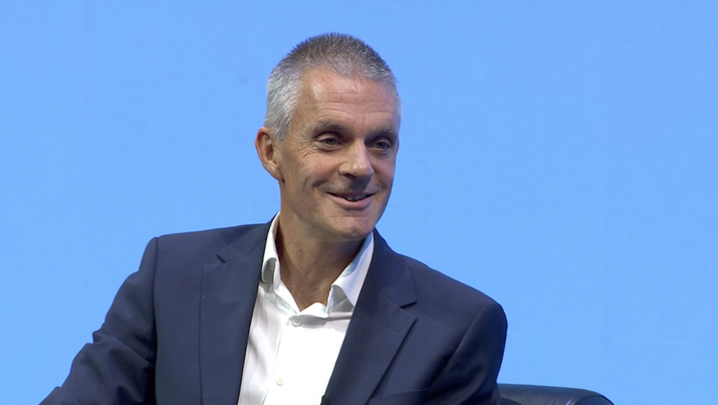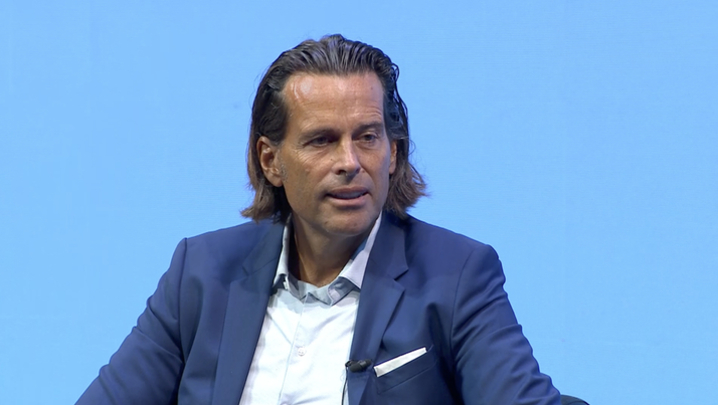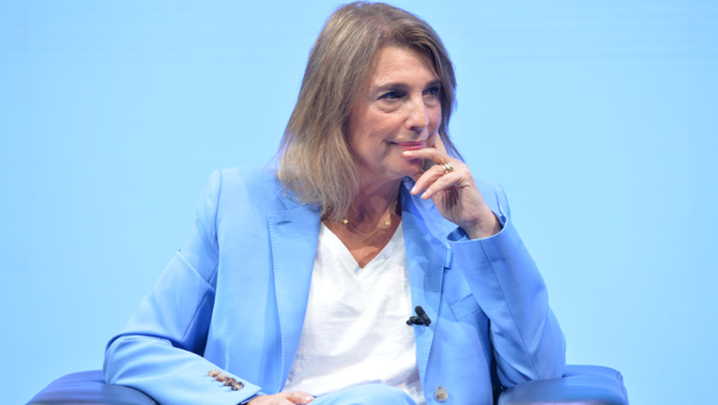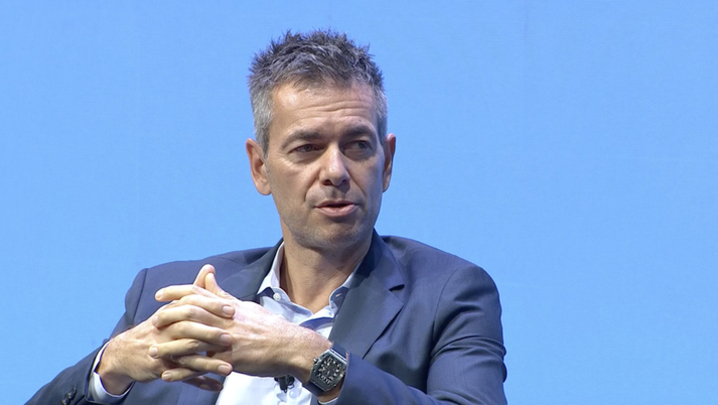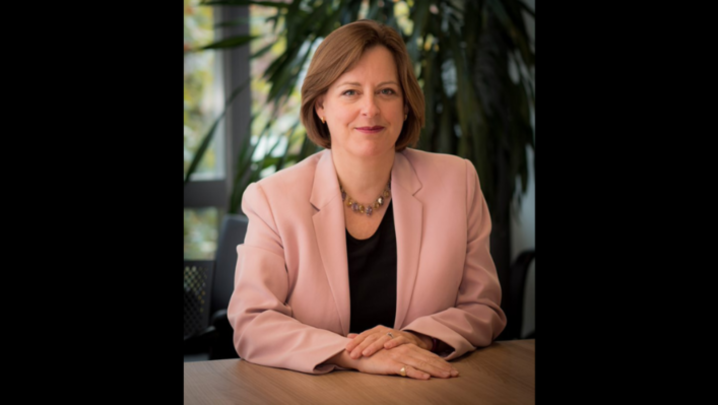Ofcom’s CEO emphasised that the regulator’s independence is vital to the health of broadcasting and democracy alike
At a time when many observers fear decisions on broadcasting matters, from the size (or existence) of the BBC licence fee to the possible privatisation of Channel 4, will be politically motivated, Ofcom Chief Executive Melanie Dawes was keen to stress her organisation’s independence – regardless of who is finally appointed Chair of the regulator or who had just been made culture secretary.
“The moment you walk into Ofcom, that independence is such an important part of our DNA,” she insisted. “Whoever our new Chair is, it’s a decision for government. We are an independent regulator.
“When Ofcom is making decisions on areas where Parliament has given us that role, for example TV complaints, in making those regulatory decisions that have an impact on companies or consumers, we are scrupulously independent. Everything we do is based on evidence and consultation. It can be challenged in courts and has to stand up to a really high threshold of fact-based, clear decision-making.
“The decisions we’re making are about freedom of speech, and that raises really important democratic questions about people’s fundamental rights to freedom of expression and how we weigh those against the need to uphold standards in broadcasting, so, on those decisions in particular, I think an independent regulator is especially important.”
Talking of TV complaints and freedom of speech, Dawes addressed the recent controversy over Piers Morgan’s comments on Good Morning Britain, the day after ITV aired Oprah Winfrey’s interview with the Duke and Duchess of Sussex. When Morgan voiced his disbelief at some of the Duchess’s claims over her mental health, a record number of viewers – 58,000 – complained to Ofcom.
Dawes defended the decision to clear ITV of breaching broadcasting regulations, while saying that it was a “finely balanced” decision: “We were critical of Piers Morgan, and some of the things he said were deemed to be harmful as well as offensive, but, at the same time, he had a robust challenge from some of his co-presenters and that didn’t happen by accident.
‘We always have freedom of expression at the heart of what we do’
“ITV designed the programme that way so that challenge was there. The decision was about whether ITV was in breach of broadcasting codes: no. But we were pretty critical of Piers’s comments.
“More generally, we do always have freedom of expression at the heart of what we do. Sometimes, people aren’t going to like our decisions but it is important that a broadcaster is entitled to transmit a range of views and opinions. It’s all about how that’s done, context and how the programme is put together.”
With most of her time in this role coinciding with the Covid crisis, Dawes reflected on the fresh appreciation for public service broadcasters felt by viewers across the UK. She said: “I wouldn’t have planned to arrive at Ofcom two weeks before lockdown, but you do get to see what this industry and sector is about. Our broadcasters had a great year – all-time highs in viewing figures in March and April, time and trust in news on UK TV on the rise. Viewers and listeners have really seen the value in PSBs.”
But she joined others at the Convention who had highlighted the shift from linear viewing habits to digital throughout that same period, and the challenges that posed for the industry as a whole: “No other country has the ecology of public service media content and organisations that the UK has. The institutions, their brands, the trust built in those institutions over many years, will carry us forward a long way, but we have to be alive to the fact that younger viewers aren’t as engaged in mainstream products. How do we cater to them?”
Interviewing Dawes, BBC journalist Clive Myrie compared the amount of UK-made original TV production per year – in total, the PSBs contributed 32,000 hours, against just 210 hours available on streaming platforms. He asked how this kind of commitment to British-based creatives could possibly be maintained when budget cuts to his own organisation had amounted to 25% since 2010.
Dawes, while pointing out that the licence fee remains a matter for negotiation between the BBC and the Government, with no Ofcom involvement, agreed that the BBC’s remit was an exceptional one: “[It] is unique in serving everyone as far as possible. Most broadcasters can choose, the BBC has to serve everyone, and have the scale and range to do that.
“Clearly, funding matters, but the BBC would agree that the challenge to meet viewers’ expectations is there, regardless of the funding.”
Pressed on how the BBC could continue to deliver value for money to the licence payer while weathering those cuts, she replied: “The BBC has delivered very significant efficiencies that has allowed it to maintain content, despite having a tighter budget. All public-sector organisations have to accept that their budgets are set by government – that’s how it works”.

For Dawes, Ofcom’s duty in this regard was to “be clear about the remit going into the second half of the Charter renewal. We do point out that this requires some choices and, at some point, the BBC has to make those choices”.
The domestic issue hanging over this year’s Convention was the privatisation of Channel 4. With the Government’s consultation process just closed, Dawes once again took a diplomatic overview: “The first question the Government needs to ask and answer is: what is Channel 4 for? What does the remit need to be?
“Our report this summer was very clear that Channel 4 is delivering against a remit that is difficult, very important and very forward-looking about serving the viewers of tomorrow. We are definitely clear about some of those facts.
“Actually, ministers have been clear that they think Channel 4 is delivering very well against the remit, as well. There’s not really a debate about that.
“As we look forward, there are a number of options, and Ofcom may well be asked for advice on some of these and we need to be ready to inform.
“The Government has said it’s looking forward and asking questions about sustainability. That’s the question it is asking and I think it’s a fair question. But it is early days.”
Dawes was far less equivocal about the need for improvements in diversity and representation across the television industry. Acknowledging that Ofcom has its own work to do in meeting diversity targets, she echoed similar calls from other Convention speakers on the need to address these issues, and urgently.
“Ofcom publishes its report in a few weeks, and this will be a five-year review. We’ve seen some improvements but they’re not enough. We’ve got nearly double the amount of people from ethnic minority backgrounds in radio but we haven’t seen the same progress in TV. In fact, Project Diamond data suggests that we’re falling back in off-screen representation.
“More and more people are leaving the industry, and, if you leave, you’re more likely to be disabled and more likely to be a woman.”
Finally, she included the even-less-addressed factor of social class, telling the audience: “If you work in TV, you’re twice as likely to have been to private school. Class cuts through a lot of these issues and is something very hard to measure but something we have to pay a lot of attention to.”
Session Fifteen: ‘UK keynote: Melanie Dawes’. Ofcom’s CEO was interviewed by BBC journalist Clive Myrie. The producers were Sue Robertson and Martin Stott. Report by Caroline Frost.

